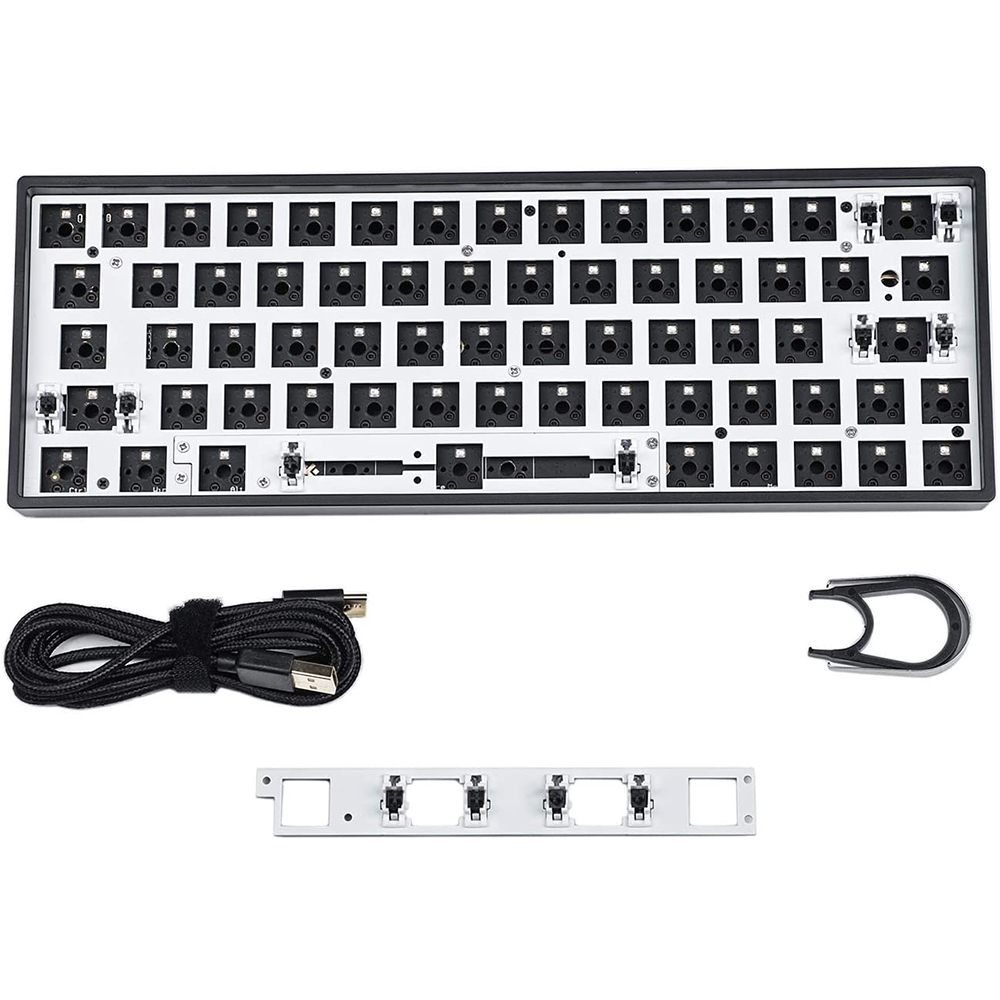Battling Memory Leaks in Android: A Comprehensive Guide for Java and Kotlin Developers
Please Subscribe Youtube| Like Facebook | Follow Twitter
Introduction
Memory management is a critical aspect of Android app development, as inefficient memory usage can lead to memory leaks, causing performance degradation and potential crashes. Memory leaks occur when objects that are no longer needed are not properly released from memory, leading to unnecessary memory consumption. In this article, we will explore the causes of memory leaks, their impact on app performance, and provide Java and Kotlin examples of best practices to detect and prevent memory leaks in Android applications. Let’s delve into the realm of memory management to ensure your apps run smoothly and efficiently.
Understanding Memory Leaks
Memory leaks occur when objects are unintentionally retained in memory, even when they are no longer required, preventing the garbage collector from reclaiming memory. Common causes of memory leaks include retaining references to objects longer than necessary, registering listeners or callbacks without proper cleanup, and using static references carelessly.
Impact of Memory Leaks
Memory leaks can have detrimental effects on your app’s performance. As memory usage increases, the app becomes more prone to slowdowns, lags, and out-of-memory errors. In severe cases, memory leaks can lead to app crashes and degrade user experience, resulting in negative reviews and decreased user retention.
Identifying Memory Leaks
Detecting memory leaks can be challenging, but several tools and techniques can help you identify potential issues. Android Studio’s Memory Profiler and LeakCanary, a popular open-source library, are valuable tools for monitoring memory usage and detecting memory leaks during development and testing phases.
Best Practices to Prevent Memory Leaks
a. Release Object References
Ensure that you release references to objects when they are no longer needed. Avoid using static references, and unregister listeners and callbacks to allow objects to be garbage-collected.
Java Example:
// Bad: Retaining reference to the context
public class MySingleton {
private static Context context;
public static void setContext(Context ctx) {
context = ctx;
}
}
// Good: Using Application context instead of Activity context
public class MyApplication extends Application {
@Override
public void onCreate() {
super.onCreate();
MySingleton.setContext(getApplicationContext());
}
}
Kotlin Example:
// Bad: Retaining reference to the context
object MySingleton {
var context: Context? = null
}
// Good: Using Application context instead of Activity context
class MyApplication : Application() {
override fun onCreate() {
super.onCreate()
MySingleton.context = applicationContext
}
}
b. Implement WeakReferences
When dealing with listeners or callbacks, consider using WeakReferences to prevent strong references from causing memory leaks.
Java Example:
// Bad: Strong reference causing memory leak
public class MyActivity extends AppCompatActivity {
private MyListener listener;
@Override
protected void onCreate(Bundle savedInstanceState) {
super.onCreate(savedInstanceState);
listener = new MyListener() {
//...
};
MyManager.getInstance().registerListener(listener);
}
@Override
protected void onDestroy() {
super.onDestroy();
MyManager.getInstance().unregisterListener(listener);
}
}
// Good: WeakReference to avoid memory leak
public class MyActivity extends AppCompatActivity {
private WeakReference<MyListener> listenerRef;
@Override
protected void onCreate(Bundle savedInstanceState) {
super.onCreate(savedInstanceState);
MyListener listener = new MyListener() {
//...
};
listenerRef = new WeakReference<>(listener);
MyManager.getInstance().registerListener(listenerRef.get());
}
@Override
protected void onDestroy() {
super.onDestroy();
MyManager.getInstance().unregisterListener(listenerRef.get());
}
}
Kotlin Example:
// Bad: Strong reference causing memory leak
class MyActivity : AppCompatActivity() {
private val listener = MyListener()
override fun onCreate(savedInstanceState: Bundle?) {
super.onCreate(savedInstanceState)
MyManager.getInstance().registerListener(listener)
}
override fun onDestroy() {
super.onDestroy()
MyManager.getInstance().unregisterListener(listener)
}
}
// Good: WeakReference to avoid memory leak
class MyActivity : AppCompatActivity() {
private val listener = MyListener()
private val listenerRef = WeakReference(listener)
override fun onCreate(savedInstanceState: Bundle?) {
super.onCreate(savedInstanceState)
MyManager.getInstance().registerListener(listenerRef.get())
}
override fun onDestroy() {
super.onDestroy()
MyManager.getInstance().unregisterListener(listenerRef.get())
}
}
c. Use Lifecycle-Aware Components
Android’s Architecture Components, like ViewModel and LiveData, automatically handle lifecycle awareness, preventing memory leaks by clearing references when the associated component is no longer needed.
Java Example:
// ViewModel automatically handles lifecycle awareness
public class MyViewModel extends ViewModel {
private MutableLiveData<Data> liveData = new MutableLiveData<>();
public LiveData<Data> getLiveData() {
return liveData;
}
}
Kotlin Example:
// ViewModel automatically handles lifecycle awareness
class MyViewModel : ViewModel() {
private val liveData = MutableLiveData<Data>()
fun getLiveData(): LiveData<Data> {
return liveData
}
}
Testing for Memory Leaks
Always conduct thorough testing, including stress and memory leak testing, to ensure your app’s memory management is robust and reliable. Use LeakCanary or custom memory testing frameworks to verify that your app doesn’t have any hidden memory leaks.
Conclusion
Efficient memory management is vital for developing high-performance Android apps. Memory leaks can lead to significant performance issues, app crashes, and negative user experiences. By understanding the causes of memory leaks and implementing best practices like releasing object references, using WeakReferences, and employing lifecycle-aware components, developers can minimize the risk of memory leaks and build reliable, responsive, and user-friendly Android applications. Regular testing and profiling are essential to identify and rectify memory leaks during development, ensuring your app delivers an exceptional user experience while conserving precious device resources.
Incorporate these memory optimization strategies into your Android app development workflow, and you’ll be on your way to creating stable, memory-efficient apps that leave a positive impact on users and contribute to the success of your app in the highly competitive app market.
Please Subscribe Youtube| Like Facebook | Follow Twitter Mens Winter Single Breasted Big Pockets Mid Long Casual Coats
Mens Winter Single Breasted Big Pockets Mid Long Casual Coats
 Mens Contrast Patchwork Flap Pocket Decoration Short Sleeve T-Shirts
Mens Contrast Patchwork Flap Pocket Decoration Short Sleeve T-Shirts
 Orange Pi 800 Development Board 4GB RAM 64GB
Orange Pi 800 Development Board 4GB RAM 64GB
 Mens Casual Corduroy Hooded Button Pocket Comfy Shirts
Mens Casual Corduroy Hooded Button Pocket Comfy Shirts
 E500 1.83 inch HD Screen ECG Monitor Heart Rate Blood Pressure
E500 1.83 inch HD Screen ECG Monitor Heart Rate Blood Pressure
 35L Outdoor Backpack Men Women Waterproof Travel Trekking Backpack
35L Outdoor Backpack Men Women Waterproof Travel Trekking Backpack
 Home Steam Sauna Box Steam Room Fumigation Machine Steam Sauna Bath Sauna Heater
Home Steam Sauna Box Steam Room Fumigation Machine Steam Sauna Bath Sauna Heater
 GPD WIN Max 2 LPDDR5 32GB RAM 2TB SSD AMD R7 6800U Windows 11 Gaming Notebook 10.1 Inch Laptop Portable Game Computer Handheld Game Console US Plug
GPD WIN Max 2 LPDDR5 32GB RAM 2TB SSD AMD R7 6800U Windows 11 Gaming Notebook 10.1 Inch Laptop Portable Game Computer Handheld Game Console US Plug
 SKYLOONG GK64X GK64XS Keyboard Kit RGB Hot Swappable 60% Programmable bluetooth Wired Case Customized Kit PCB Mounting Plate Case with Replacable Space Key
SKYLOONG GK64X GK64XS Keyboard Kit RGB Hot Swappable 60% Programmable bluetooth Wired Case Customized Kit PCB Mounting Plate Case with Replacable Space Key